- Clone
- 10.1 (See other available formats)
- Regulatory Status
- RUO
- Workshop
- VI MA36
- Other Names
- FcγRI, FcR I
- Isotype
- Mouse IgG1, κ
- Ave. Rating
- Submit a Review
- Product Citations
- publications
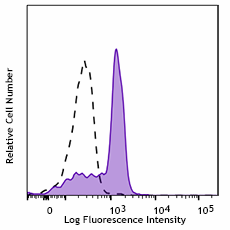
-

Human peripheral blood monocytes were stained with CD64 (clone 10.1) Purified (filled histogram) or Purified Mouse IgG1, κ isotype control (open histogram) followed by anti-mouse IgG FITC
| Cat # | Size | Price | Quantity Check Availability | Save | ||
|---|---|---|---|---|---|---|
| 305047 | 100 µg | 220 CHF | ||||
| 305048 | 1 mg | 759 CHF | ||||
CD64 is a 72 kD single chain type I glycoprotein also known as FcγRI and FcR I. CD64 is a member of the immunoglobulin superfamily and is expressed on monocytes/macrophages, dendritic cells, and activated granulocytes. The expression can be upregulated by IFN-γ stimulation. CD64 binds IgG immune complex. It plays a role in antigen capture, phagocytosis of IgG/antigen complexes, and antibody-dependent cellular cytotoxicity (ADCC).
Product DetailsProduct Details
- Verified Reactivity
- Human, Cynomolgus, Rhesus
- Reported Reactivity
- Baboon, Capuchin Monkey, Chimpanzee, Squirrel Monkey
- Antibody Type
- Monoclonal
- Host Species
- Mouse
- Immunogen
- Human rheumatoid synovial fluid cells and fibronectin-purified monocytes.
- Formulation
- 0.2 µm filtered in phosphate-buffered solution, pH 7.2, containing no preservative.
- Endotoxin Level
- Less than 0.01 EU/µg of the protein (< 0.001 ng/µg of the protein) as determined by the LAL test.
- Preparation
- The Ultra-LEAF™ (Low Endotoxin, Azide-Free) antibody was purified by affinity chromatography.
- Concentration
- The antibody is bottled at the concentration indicated on the vial, typically between 2 mg/mL and 3 mg/mL. Older lots may have also been bottled at 1 mg/mL. To obtain lot-specific concentration and expiration, please enter the lot number in our Certificate of Analysis online tool.
- Storage & Handling
- The antibody solution should be stored undiluted between 2°C and 8°C. This Ultra-LEAF™ solution contains no preservative; handle under aseptic conditions.
- Application
-
FC - Quality tested
IHC-F, Block - Reported in the literature, not verified in house - Recommended Usage
-
Each lot of this antibody is quality control tested by immunofluorescent staining with flow cytometric analysis. For flow cytometric staining, the suggested use of this reagent is ≤ 0.5 µg per million cells in 100 µl volume. It is recommended that the reagent be titrated for optimal performance for each application.
- Application Notes
-
Clone 10.1 recognizes the EC3 epitope of CD64. While both contain the EC3 domain, in-house testing suggests that clone 10.1 preferentially binds to CD64A (FcγRIA), but not CD64B (FcγRIB). Additional reported applications (for the relevant formats) include: blocking of human IgG3 and murine IgG2a binding to FcγRI2,5,6,11 and immunohistochemical staining of acetone-fixed frozen tissue sections12.
-
Application References
(PubMed link indicates BioLegend citation) -
- McMichael A, et al. Eds. 1987. Leucocyte Typing III. Oxford University Press. New York.
- Schlossman S, et al. Eds. 1995. Leucocyte Typing V. Oxford University Press. New York. p. 874.
- Kishimoto T, et al. Eds. 1997. Leucocyte Typing VI. Garland Publishing Inc. London.
- Holl V, et al. 2004. J. Immunol. 173:6274.
- Hober D, et al. 2002. J. Gen. Virol. 83:2169.
- Cho HJ, et al. 2007. Physiol Genomics 149:60.
- van Tits L, et al. 2005. Arterioscler Thromb Vasc Biol. 25:717. PubMed
- Bruhns P, et al. 2008. Blood 113:3716. PubMed
- Yoshino N, et al. 2000. Exp. Anim. (Tokyo) 49:97. (FC)
- Carter DL, et al. 1999. Cytometry 37:41. (FC)
- Dougherty GJ, et al. 1987. Eur. J. Immunol. 17:1453.
- Blom AB, et al. 2003. Arthritis Rheum. 48(4):1002-14. (IHC)
- Product Citations
-
- RRID
-
AB_2810455 (BioLegend Cat. No. 305047)
AB_2810456 (BioLegend Cat. No. 305048)
Antigen Details
- Structure
- Ig superfamily, type I glycoprotein, 72 kD
- Distribution
-
Monocytes, macrophages, dendritic cells, activated granulocytes
- Function
- Phagocytosis, ADCC
- Ligand/Receptor
- IgG receptor
- Cell Type
- Dendritic cells, Granulocytes, Macrophages, Monocytes
- Biology Area
- Immunology, Innate Immunity
- Molecular Family
- CD Molecules, Fc Receptors
- Antigen References
-
1. Hulett M, et al. 1994. Adv. Immunol. 57:1.
2. van de Winkel J, et al. 1993. Immunol. Today 14:215. - Gene ID
- 2209 View all products for this Gene ID
- UniProt
- View information about CD64 on UniProt.org
Related Pages & Pathways
Pages
Related FAQs
- Is our human Trustain FcX™ (cat# 422302) compatible with anti human CD16, CD32 and CD64 clones 3G8, FUN-2 and 10.1 respectively?
-
Yes
- Do you guarantee that your antibodies are totally pathogen free?
-
BioLegend does not test for pathogens in-house aside from the GoInVivo™ product line. However, upon request, this can be tested on a custom basis with an outside, independent laboratory.
- Does BioLegend test each Ultra-LEAF™ antibody by functional assay?
-
No, BioLegend does not test Ultra-LEAF™ antibodies by functional assays unless otherwise indicated. Due to the possible complexities and variations of uses of biofunctional antibodies in different assays and because of the large product portfolio, BioLegend does not currently perform functional assays as a routine QC for the antibodies. However, we do provide references in which the antibodies were used for functional assays and we do perform QC to verify the specificity and quality of the antibody based on our strict specification criteria.
- Does BioLegend test each Ultra-LEAF™ antibody for potential pathogens?
-
No, BioLegend does not test for pathogens in-house unless otherwise indicated. However, we can recommend an outside vendor to perform this testing as needed.
- Have you tested this Ultra-LEAF™ antibody for in vivo or in vitro applications?
-
We don't test our antibodies for in vivo or in vitro applications unless otherwise indicated. Depending on the product, the TDS may describe literature supporting usage of a particular product for bioassay. It may be best to further consult the literature to find clone specific information.
Other Formats
View All CD64 Reagents Request Custom ConjugationCustomers Also Purchased
Compare Data Across All Formats
This data display is provided for general comparisons between formats.
Your actual data may vary due to variations in samples, target cells, instruments and their settings, staining conditions, and other factors.
If you need assistance with selecting the best format contact our expert technical support team.
-
Biotin anti-human CD64
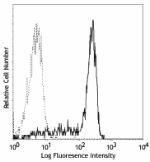
Human peripheral blood monocytes stained with 10.1 FITC -
FITC anti-human CD64

Human peripheral blood monocytes stained with 10.1 FITC -
PE anti-human CD64
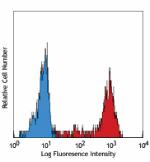
Human peripheral blood monocytes stained with 10.1 PE -
Purified anti-human CD64
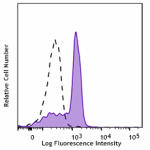
Human peripheral blood monocytes were stained with CD64 (clo... -
Alexa Fluor® 488 anti-human CD64
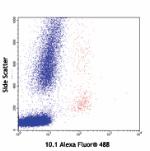
Human peripheral blood lymphocytes, monocytes, and granulocy... -
Alexa Fluor® 647 anti-human CD64
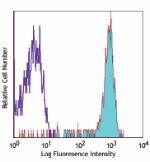
Human peripheral blood monocytes stained with10.1 Alexa Fluo... -
APC anti-human CD64
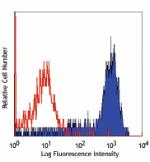
Human peripheral blood monocytes stained with 10.1 APC -
Pacific Blue™ anti-human CD64
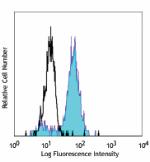
Human peripheral blood monocytes stained with 10.1 Pacific B... -
Brilliant Violet 421™ anti-human CD64
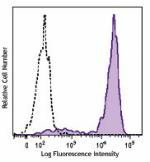
Human peripheral blood monocytes were stained with CD64 (clo... -
PE/Cyanine7 anti-human CD64
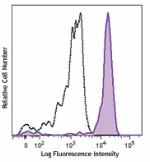
Human peripheral blood monocytes stained with anti-human CD6... -
PerCP/Cyanine5.5 anti-human CD64
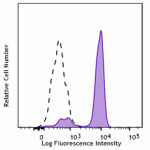
Human peripheral blood monocytes stained with CD64 (clone 10... -
APC/Cyanine7 anti-human CD64
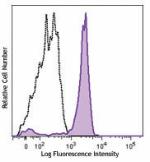
Human peripheral blood monocytes stained with anti-human CD6... -
Brilliant Violet 510™ anti-human CD64
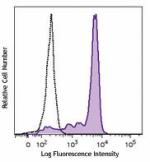
Human peripheral blood monocytes were stained with anti-huma... -
Purified anti-human CD64 (Maxpar® Ready)
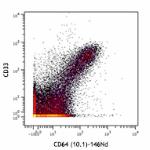
Human PBMCs stained with 158Gd-anti-CD33 (WM53) and 146Nd-an... -
PE/Dazzle™ 594 anti-human CD64
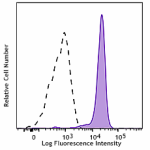
Human peripheral blood monocytes were stained with CD64 (clo... -
Brilliant Violet 605™ anti-human CD64
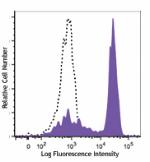
Human peripheral blood monocytes were stained with CD64 (clo... -
APC/Fire™ 750 anti-human CD64
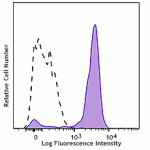
Human peripheral blood monocytes were stained with anti-huma... -
PE anti-human CD64

Typical results from human peripheral blood monocytes staine... -
PE/Dazzle™ 594 anti-human CD64

Typical results from human peripheral blood monocytes staine... -
FITC anti-human CD64

Typical results from human peripheral blood monocytes staine... -
TotalSeq™-A0162 anti-human CD64
-
Brilliant Violet 711™ anti-human CD64
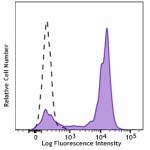
Human peripheral blood monocytes were stained with CD64 (clo... -
Alexa Fluor® 700 anti-human CD64
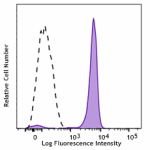
Human peripheral blood monocytes were stained with CD64 (Clo... -
Brilliant Violet 785™ anti-human CD64

Human peripheral blood monocytes were stained with CD64 (clo... -
TotalSeq™-C0162 anti-human CD64
-
Ultra-LEAF™ Purified anti-human CD64

Human peripheral blood monocytes were stained with CD64 (clo... -
TotalSeq™-B0162 anti-human CD64
-
TotalSeq™-D0162 anti-human CD64
-
GMP PE anti-human CD64
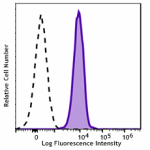
Typical results from human peripheral blood monocytes staine... -
GMP FITC anti-human CD64
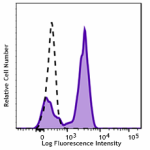
Typical results from human peripheral blood monocytes staine... -
Brilliant Violet 650™ anti-human CD64
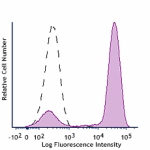
Human peripheral blood monocytes were stained with anti-huma... -
GMP PE/Dazzle™ 594 anti-human CD64
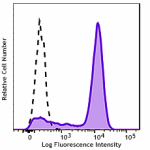
Typical results from human peripheral blood monocytes staine... -
PE/Cyanine7 anti-human CD64
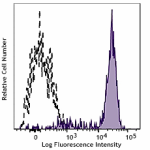
Typical result from human peripheral monocytes stained eithe... -
APC/Fire™ 750 anti-human CD64
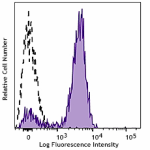
Typical results from human peripheral blood monocytes staine... -
PerCP/Cyanine5.5 anti-human CD64
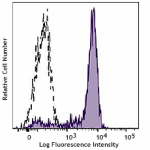
Typical result from human peripheral blood monocytes stained... -
Pacific Blue™ anti-human CD64

Typical result from human peripheral blood monocytes stained... -
GMP APC/Fire™ 750 anti-human CD64

Typical results from human peripheral blood monocytes staine... -
GMP PE/Cyanine7 anti-human CD64

Typical results from human peripheral blood monocytes staine...
 Login / Register
Login / Register 






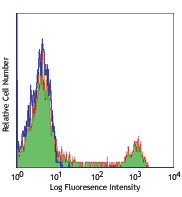
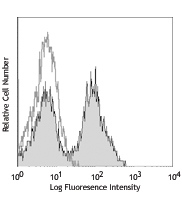
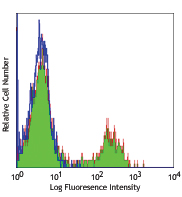
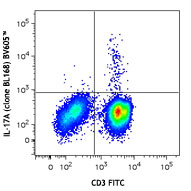



Follow Us